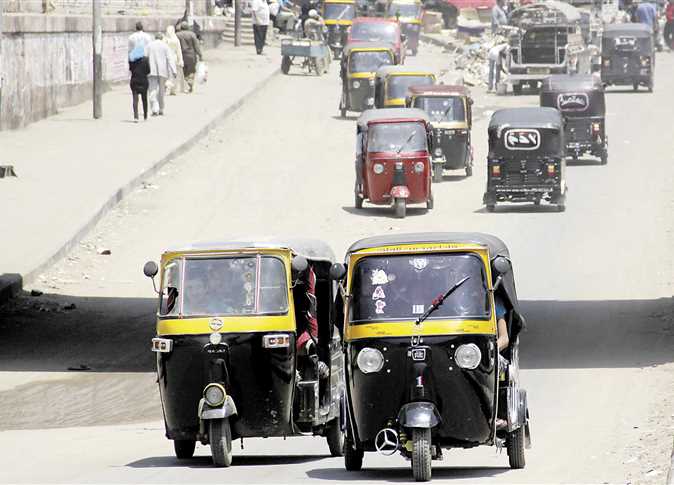Over the coming weeks, Al-Masry Al-Youm each Wednesday will feature pieces that dissect the reasons behind sexual harassment, the coping mechanisms for women (and men) in the streets of Cairo and the system that has been set up to tackle this festering issue. Comments and input are appreciated – send us your stories of sexual harassment and information on any organizations or initiatives that combat sexual harassment in Egypt.
Any woman living in Cairo will tell you that sexual harassment has been on the increase since she was little. Our mothers will tell us that in the '60s, sexual harassment was unheard of – women would walk the streets in miniskirts and halter tops, and the most they would hear was a comment about how beautiful they looked.
“We used to walk through the streets to university in little skirts,” says Sherifa Mansour, 69, “and no one said a word – everyone dressed like that.”
But the streets of Cairo today are a different story – in fact, the streets of any city in Egypt will give you a taste of harassment, the likes of which I have yet to find anywhere else.
In recent years, harassment has found its way into the vocabulary of Egyptian woman. Despite the televised denial of its existence by former first lady Suzanne Mubarak in 2008, 83 percent of women who participated in a poll that year said they were sexually harassed, half of them adding it happened on a daily basis. Um Hashem, a housekeeper in Zamalek, says a day does not go by where she doesn’t hear sexual comments from the men who sit behind her in the microbus to work.
“If I told my husband, he’d make me stay home because he’d be worried about me,” she explains.
Organizations like HarassMap, which tracks sexual harassment reports on a map, have tried to locate perpetrators, warn women and point out exactly how often harassment occurs on the streets of Egypt's cities. Even legislation has been passed to fine and jail harassers based on the extent of their actions.
The film industry has also woken up to the extremity of the situation. The film 678 (2010), directed by Mohamed Diab, tackles old stereotypes, such as a man meeting a woman through sexual harassment – or through lighter, more complimentary (albeit unsolicited) comments – and then marrying her by the end of the story. The film replaces that narrative with the destructive realities that sexual harassment can cause for women, men and the relationships they share.
Sexual harassment has many definitions, but the clearest ones deal with unwanted sexual advances, involving everything from looks to comments, gestures, entering an individual’s personal space in a sexual manner and even grabbing or touching – although any physical contact usually falls under the umbrella of sexual assault.
“I’ve been threatened more by a man following me and breathing heavily on a dark street than by the lewdest of comments or the near brushes with being grabbed by men on bicycles,” says Lilian Samir.
A dichotomy is found in Egypt – juxtaposed values, like the honor and respect that a mother or sister will get and the disrespect and sexuality attributed to women functioning in public space, coexist in modern Egypt and different situations bring the question up again and again. Perhaps this is why men so often deny the existence of sexual harassment all together.
“The women being harassed are not respectable women,” says Ibrahim Said, a plumber from Helwan, “and proof of that is in the fact that our wives and sisters don’t get harassed.”
Most interesting was the reported lack of sexual harassment during the 18 days in which the country was up in arms against the regime. Was it the sense of national unity? A momentary lift of the day to day frustrations and therefore less of a reason to lash out on the “weaker” sex? Or was it merely a distraction – a continued lack of understanding for the destructive nature of sexual harassment, but merely a few days off as passion and rage were focused on the regime?
Contact the Life & Style section at [email protected] for your input in The Sexual Harassment File.




